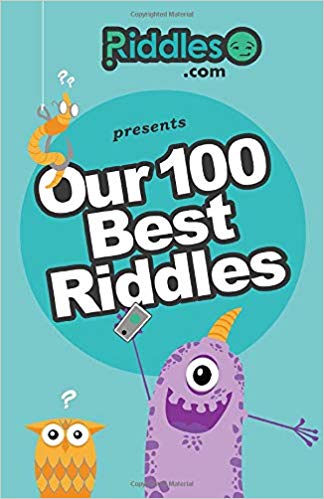Enter a keyword into the search box. The riddle search will check to see if the word is in the Title, Riddle, or Answer and return results if they exist.
"Riddle" Riddles - Next 10 of 721.
Riddle:
I talk, but I do not speak my mind I hear words, but I do not listen to thoughts When I wake, all see me When I sleep, all hear me Many heads are on my shoulders Many hands are at my feet The strongest steel cannot break my visage But the softest whisper can destroy me The quietest whimper can be heard. What am I?
Answer: An Actor.
Riddle:
What has millions of ears but can't hear anything?
Answer: Corn.
Riddle:
The presence of himself is set in soft ground Awares in certain assets Illumed since the days of his youth. Who is it?
Answer: The riddle "The Presece of Himself Riddle" is unanswered. Do you know the answer? If so, click and add your answer in the comments section.
Riddle:
A fast food restaurant sells chicken in orders of 6,9 and 20. What's the largest number of pieces of chicken you cannot order from the restaurant?
Answer: 43 is the last number that doesn't fall into these categories.
Riddle:
Completely round, they are very white. After a full meal and a refreshing bath, they lie down together. What are they?
Answer: A stack of white ceramic bowls.
Riddle:
What starts with 'L', ends in 'S', and causes the utmost distress?
Answer: Loneliness.
Riddle:
On Earth, I am dead, Though I live on the moon. I am in no crater, And I'm in every boom. What am I?
Answer: The Letter "0".
Riddle:
Why is a dandy like a haunch of venison?
Answer: He is a bit of a buck.
Riddle:
Ten men, five women, and 15 three-year-olds are being watched by thousands of cheering people. The men and the women and the three-year-olds are observed slowly entering 15 box-like structures, each having iron bars in the front. The men and women are not related to the three-year-olds, but at times witnesses have reported seeing these adults whip these three-year-olds to force them to obey their commands. Fortunately, the barred doors suddenly spring open and the men, women, and three-year-olds make their escape; however, they are easily tracked, as they always feel compelled to travel to the left, and never to the right. The thousands of people watching these proceedings are all waiting to see who will be the first to meet their end. These circumstances are inexcusable in a civilized society! How can thousands of people just idly sit by and cheer while a group of men and women whip a bunch of three-year-olds before their very eyes? What is wrong with society? Or, is there a simple explanation for these bizarre-sounding events? Just what exactly is going on here?
Answer: With a maximum of 20 entrants in each race, the Kentucky Derby, the Preakness, and the Belmont Stakes feature only three-year-old thoroughbreds racing from their starting gates to their end at the finish line. Not all of the jockeys use whips on their horses, but many still do. By the way, to answer the title question: at the start of every race, they are not on —— They’re off!!!
Riddle:
What is a vampires favorite car to drive in?
Answer: A bloodmobile?

